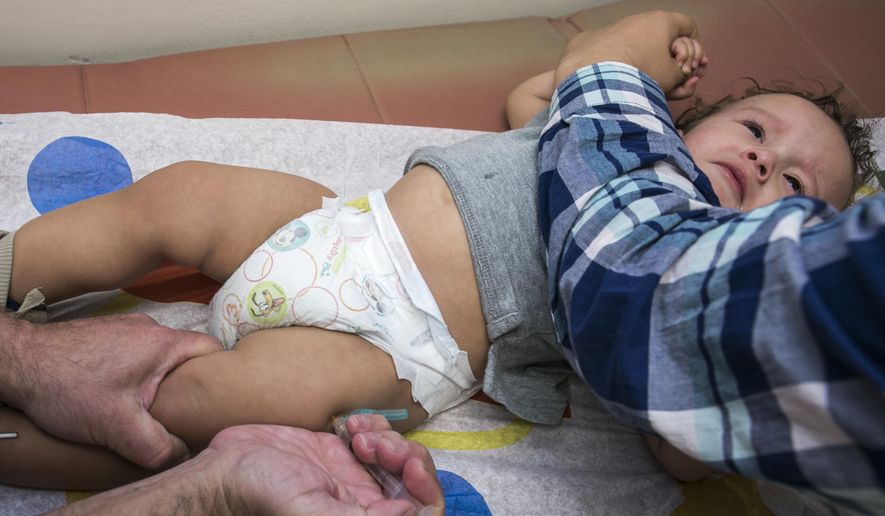SEATTLE (AP) — Measles killed a Washington woman in the spring — the first such death in the U.S. in 12 years and the first in the state in 25, health officials said Thursday.
The case wasn’t related to a recent measles outbreak that started at Disneyland and triggered a national debate about vaccinations, according to the Washington State Department of Health. Officials said it was a different strain.
The Washington woman lacked some of the measles’ common symptoms, such as a rash, so the infection wasn’t discovered until an autopsy, department spokesman Donn Moyer said.
It was the 11th case of measles in Washington — and the sixth in Clallam County — this year, he said.
Measles is highly contagious and spreads when an infected person breathes, coughs or sneezes. However, dying from the illness is extremely rare, Moyer said.
Officials didn’t say whether the woman was vaccinated, but they did note she had a compromised immune system. They withheld her age to protect her identity but said she was not elderly.
SEE ALSO: California vaccine bill battle erupts into all-out political war
The Disneyland outbreak started in December and eventually sickened more than 140 people across the country and in Mexico and Canada. No deaths resulted from that outbreak.
The prompt responses by heath care workers across the country have helped stop the measles’ spread, but it continues to be imported into the U.S., said Anne Schuchat, director of the National Center for Immunization and Respiratory Diseases at the Centers for Disease Control and Prevention. There have been 178 cases in the country so far this year.
Schuchat said the best protection is immunization.
“It’s very sad that we have a death from measles in the U.S.,” she said in a telephone interview with The Associated Press. “We really rely on people who can be vaccinated to protect those for whom vaccine protection isn’t available,” such as the woman with a depressed immune system.
Others in this condition include people with leukemia or those getting some cancer treatments, Schuchat said.
“As we see more measles cases, we run the risk of a fatality,” she said. “We hope to see the day when no one dies from measles.”
The woman was hospitalized for several health conditions in the spring at a facility in Clallam County, which covers the northern part of the Olympic Peninsula. She was there at the same time as a person who later developed a rash and was contagious for measles, Moyer said. That’s when the woman most likely was exposed.
She was on medications that contributed to her weakened immune system, he said.
After being treated in Clallam County, the woman was moved to the University of Washington Medical Center in Seattle, where she died. An autopsy concluded the cause of death was pneumonia due to measles.
“This tragic situation illustrates the importance of immunizing as many people as possible to provide a high level of community protection against measles,” Moyer said. “People with compromised immune systems cannot be vaccinated against measles. Even when vaccinated, they may not have a good immune response when exposed to disease; they may be especially vulnerable to disease outbreaks.”
This week, California Gov. Jerry Brown signed a hotly contested bill to impose one of the strictest school vaccination laws in the country. Those in the U.S. who remain opposed to vaccinations include some religious communities, families practicing alternative medicine and libertarians who shun government interference.
The last active case of measles in Washington was reported in late April.
It’s possible to develop measles within three weeks of exposure. Since three weeks have passed since the last measles case, no one who had contact with the known cases is at risk, Moyer said.




Please read our comment policy before commenting.